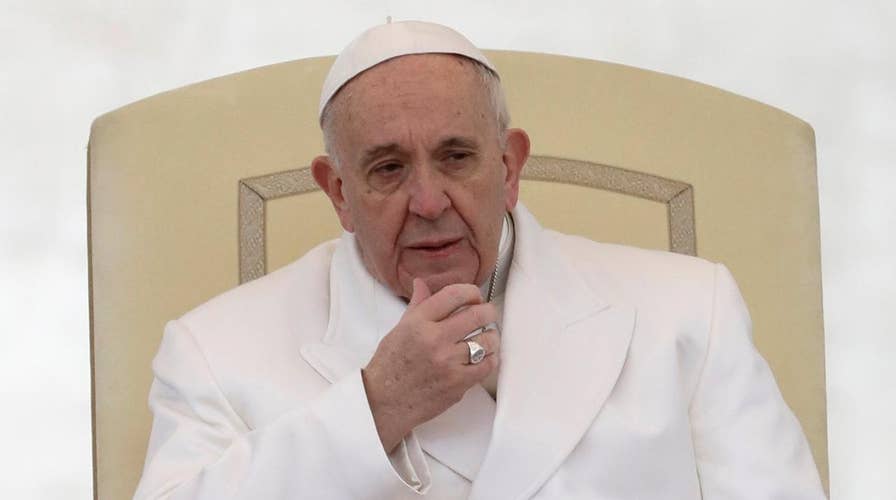Pope Francis: Better to be atheist than hypocritical
Pope calls out Catholics during a private Mass
Pope Francis envisions a Catholic Church that battles the “globalization of indifference.” Ironically, President Trump has proven more effective than Francis at galvanizing Catholics to join that battle.
Francis’s vision is clear: “a poor church for the poor.” He has decried the “globalization of indifference,” where we slough off the suffering of others as “none of my business.”
He asked each of Europe’s Catholic parishes to shelter a refugee family and, more expansively, called for society to, “ensure that all citizens have dignified work, education, and healthcare.”
The world apparently loves that vision. A whopping 87 percent of American Catholics view him favorably; in contrast, Donald Trump’s job approval hovers just over 40 percent.
Yet the pope has had trouble translating that sky-high approval rating into results. Not much happened after the pope asked parishes to welcome refugees. Nor were his inauguration of a homeless shelter and medical clinic in the Vatican precincts matched by a surge of similar initiatives elsewhere.
Enter President Trump. As soon as his administration announced its new immigration laws, Catholic Church entities responded. Chicago’s Catholic schools barred their doors to immigration agents who cannot produce warrants, and churches in various cities opened their doors as sanctuaries.
Next up was the Trump-endorsed health care proposal. I’m privileged to chair the board of one of America’s largest Catholic hospital systems, and we’re now even more committed than ever to keeping our doors open to the poor, elderly, and disabled whose health care access is suddenly threatened. As the Catholic Health Association puts it, we are strongly opposed to a plan that, “asks the low-income and most vulnerable in our country to bear the brunt of the cuts to our health care system.
Francis has championed a church “for the poor,” but it’s President Trump who has inspired Catholics to redouble our already ample efforts on behalf of poor and marginalized communities, and to advocate vociferously for a more just society.
Strikingly, the response has united “liberal” and “conservative” Catholics. Even bishops who had voiced serious reservations about certain ObamaCare provisions have argued against a repeal that leaves the vulnerable without meaningful access.
As I point out in my book "Everyone Leads," the Catholic Church faces a plethora of challenges: declining clergy numbers, the lingering fallout from sex abuse scandals, fading interest among young adults in organized religion, and so on. And when faced with grave challenges, organizations need to pull themselves together around strategies for concerted action. Unfortunately, that unity has too often eluded Catholics; we’ve been mired in intramural squabbles over everything from prayer translations at Mass to communion for divorced and remarried Catholics.
Pope Francis hasn’t completely unified us around his vision of a church that stands up for poor, marginalized, and excluded communities; it's President Trump who just may have provided the catalytic spark.
Granted, it will be small consolation, indeed no consolation whatsoever, if at the end of all this, we Catholics are better united but our brothers and sisters in need still bear the brunt of unjust initiatives.
But I hope for something different: that we Catholics, of all ideological stripes, in concert with those of all other religious traditions, will continue to act together to ensure the “dignified work, education, and healthcare” that the Pope called for.
In order to pull that off, I think we’ll have to heed another call of Francis, who voiced preference for a church that is, “bruised, hurting and dirty because it has been out on the streets.”
Now is the time for Catholics to unite not only on Sunday morning in church, but on every day and in every place where the vulnerable are threatened.









































